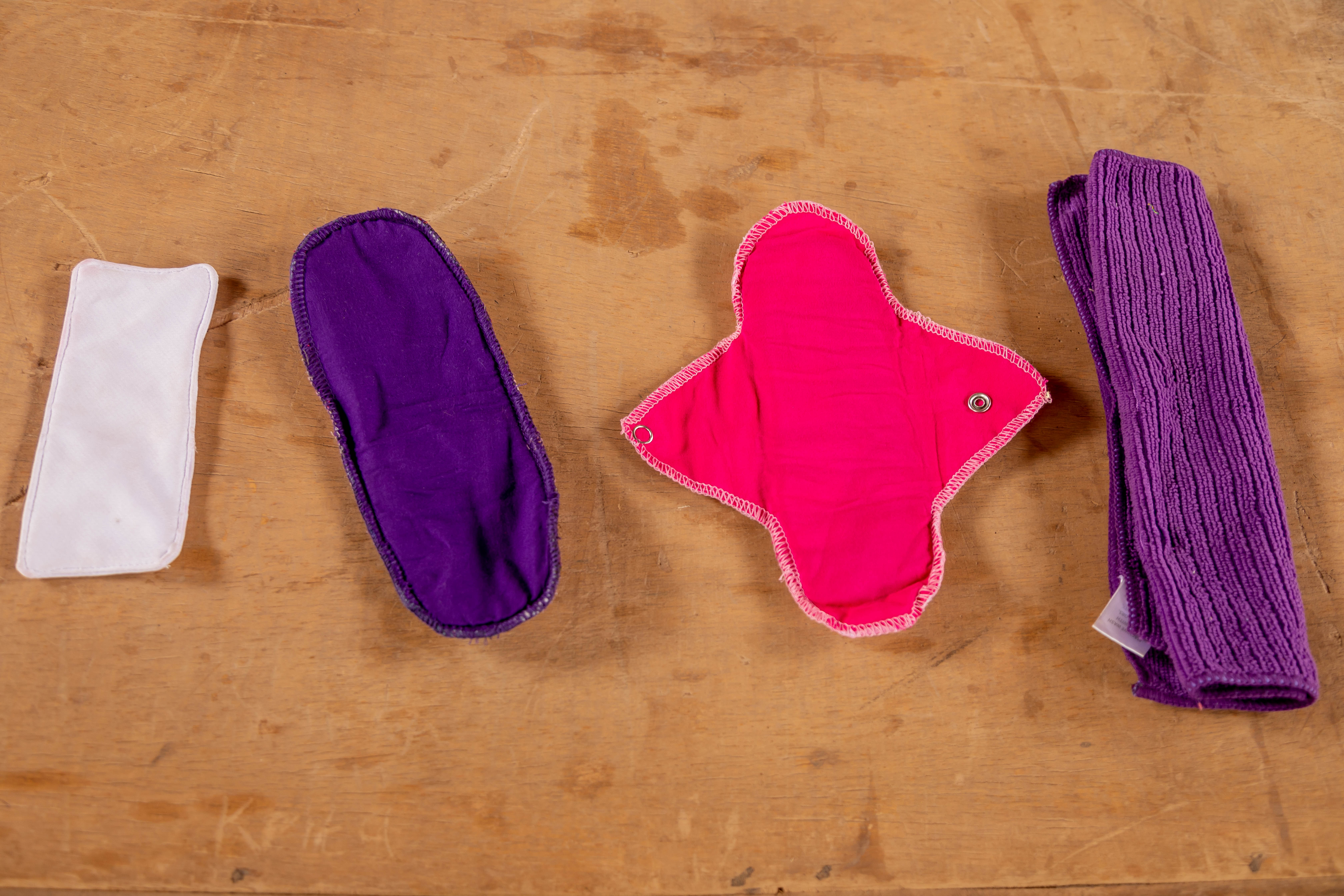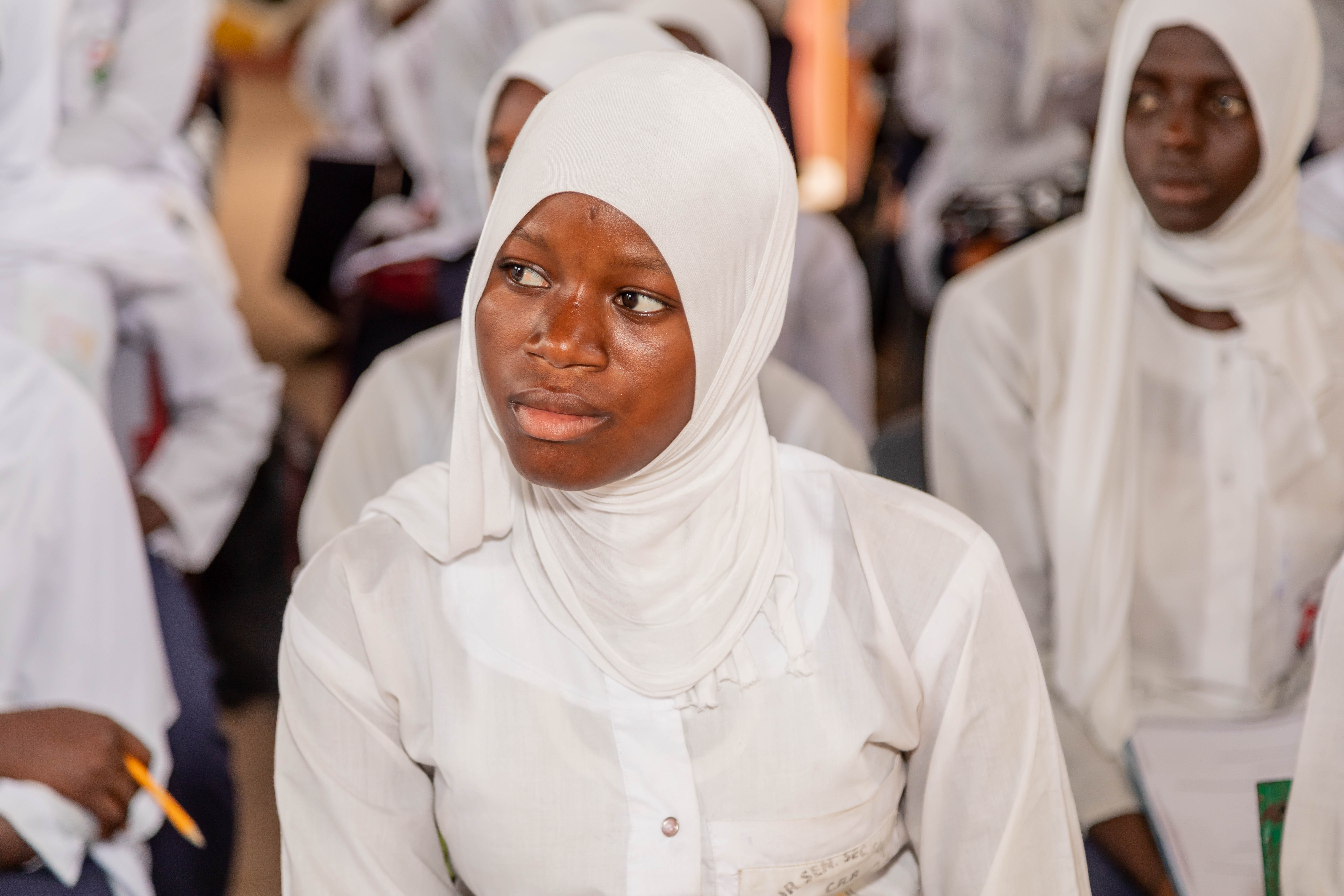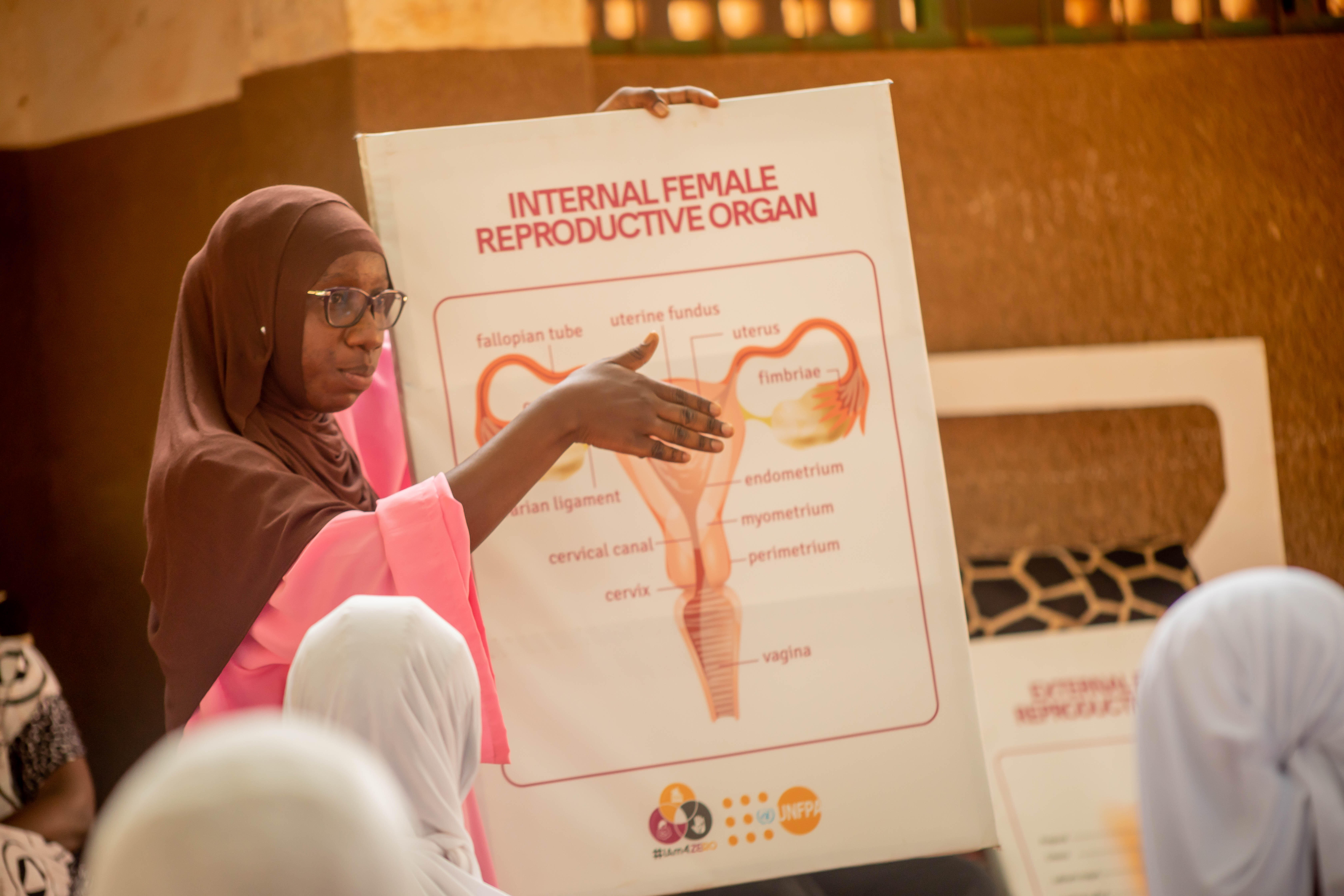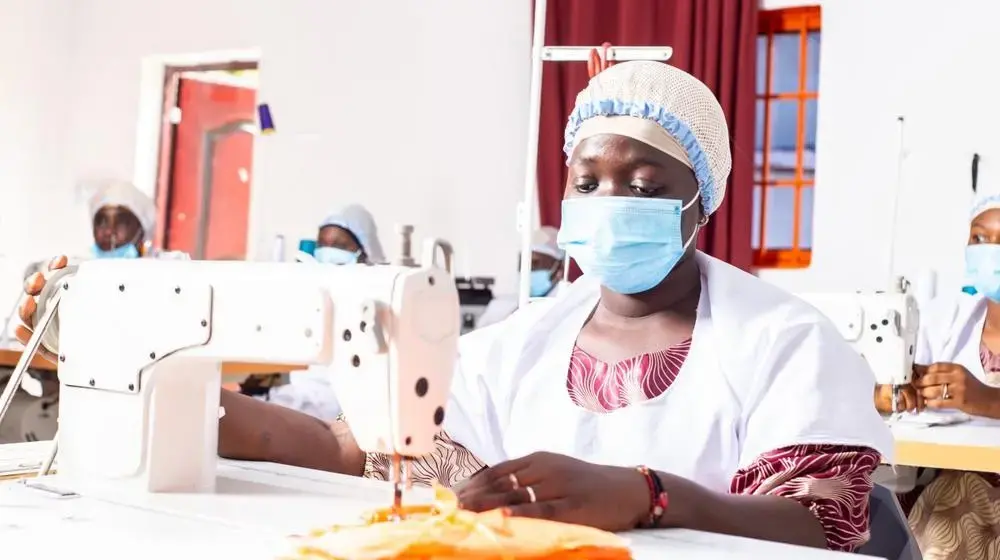Adolescence is a critical period in the physical, emotional and development of an individual. It is a period during which key lessons form the basis of their perception of social issues and their understanding of personal growth and development. Adolescent girls due to socio-cultural factors in Gambian communities encounter various difficulties which expose them to risk and increase their vulnerability to violence.
One of the issues affecting them is limited access to Menstrual Hygiene products and the social stigma around menstruation. Such stigma perpetuates violence and exposes them to harmful practices such as Child Marriage.

As part of UNFPA’s “I Am for Zero” campaign organised in collaboration with its partners, adolescent girls both in and out-of-school were engaged in discussions around Menstrual Health and Hygiene Management and how social stigma around menstruation perpetuates Gender Based Violence (GBV). The activity which targeted various schools across the Upper River, Central River and North Bank regions of The Gambia reached about 600 adolescent girls.
Salamata Sey, 15 is a student at Njau Basic Cycle School. For her, little information about menstruation and menstrual hygiene is shared with them both in school and at home.
“Now I know the best way to take care of myself while on my period” she highlighted.
In communities where Child Marriage is highly prevalent, menstruation is a sign of readiness for marriage, which further increases their vulnerability to violence. Mam Fatou Drammeh, 17 of Njau Basic School shared that her classmate was taken out of school and married off to a close relative where she is currently battered by her spouse. “Seeing my friend go through such physical and emotional violence has inspired me to continue with my education an ensure that I become a graduate” she added.

Menstruation is one of the major factors that keeps girls out of school. Due to fear of being subjected to period shaming and inadequate access to menstrual hygiene products, such girls miss out on school each month while on their periods.
UNFPA is currently working with its partners to establish a menstrual pad production centre to increase access to reusable sanitary pads for girls and women and ensure the eradication of pad poverty in Gambian communities.
Media contact:
Haddy Jonga – Programme Analyst Communications, UNFPA The Gambia jonga@unfpa.org
Faith C. Ememodo – Communications Intern, UNFPA The Gambia ememodo@unfpa.org





